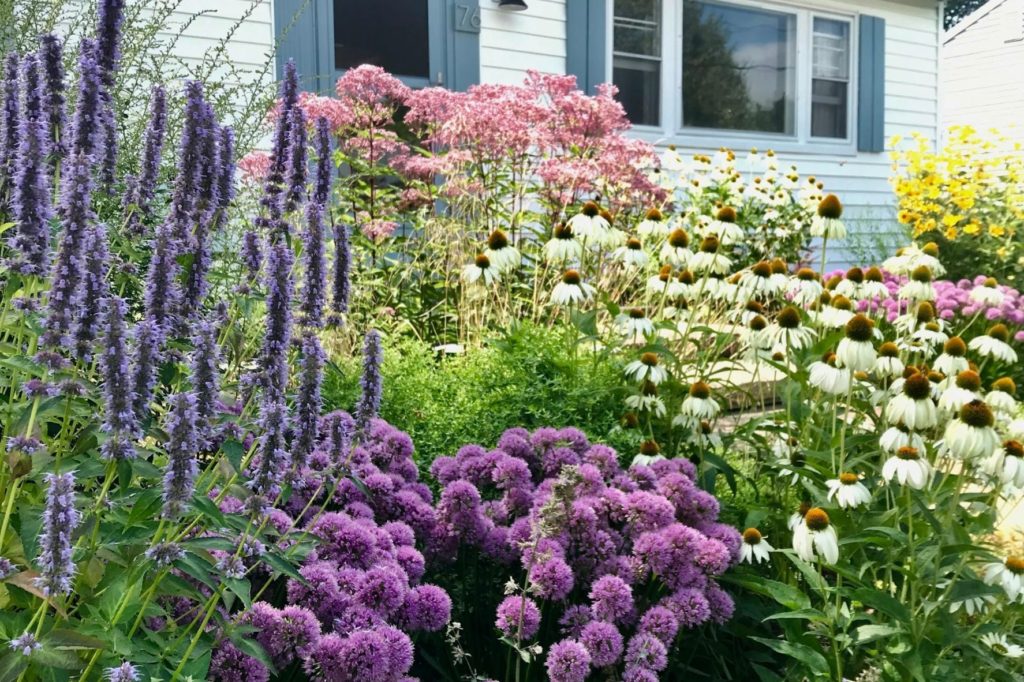
Earlier this month I had the pleasure of spending the morning at our State Capitol building, testifying before the Judiciary Committee, on behalf of Maine Audubon, in support of the proposed bill LD 649, “An Act to Promote Water Conservation and Water Quality and Create Habitat for Wildlife, Including Pollinator Species, by Protecting Low-impact Landscaping.”
The bill is sponsored by Senator Mattie Daughtry, District 23, of Cumberland County. Maine Audubon supports this bill because we view it as an important strategy among many for supporting biodiversity in our backyards—this legislation will literally help Mainers do just that. By restoring and rebuilding Maine’s natural biodiversity through the planting of native wildflowers, shrubs, and trees, we can support the widest array of wildlife. Native plant species host hundreds of adult butterflies and moths, especially in their larval stage, because the species have co-adapted together over millennia. Those caterpillars and other insects that rely on these plants are the primary food source for many bird species. What’s more, the pollen and nectar produced by native plants are critical to pollinators, which other animals depend on for food.
In a well-publicized case in Maryland, Janet and Jeff Crouch’s homeowners association ordered them to replace their wildlife-friendly, native plantings with turf grass. This came after more than a decade of incremental steps taken to transform their landscape into a wildlife oasis. If forced to convert the space back to turf grass, over a decade of environmental restoration would be erased in a matter of days. The couple sued and, subsequently, Maryland lawmakers passed legislation to limit homeowner association control over “eco-friendly” yards. Maine’s LD 649 is consistent with that effort and similar efforts in other states.
As Maine’s population grows, and development pressure increases, ecological landscaping practices will become critical to preserving our natural environment. In the face of this development pressure, Maine Audubon sees a great need for legislation that protects low impact landscaping.
Stay tuned for updates on this important legislation and consider writing to your local representatives in support of LD 649!
